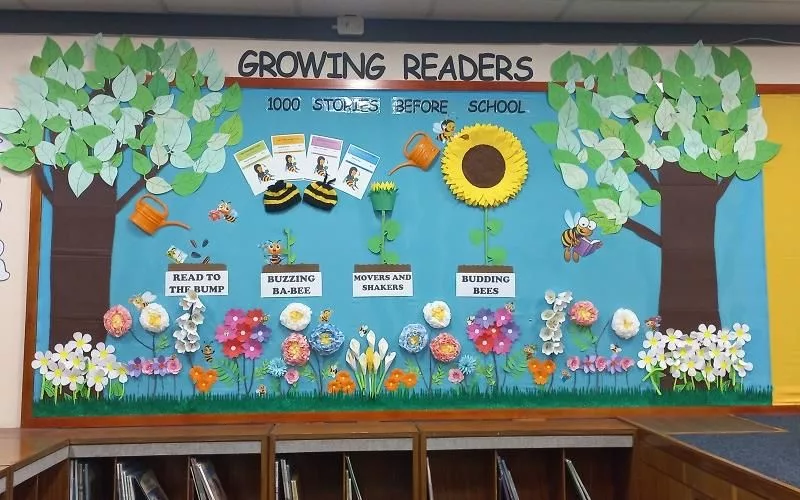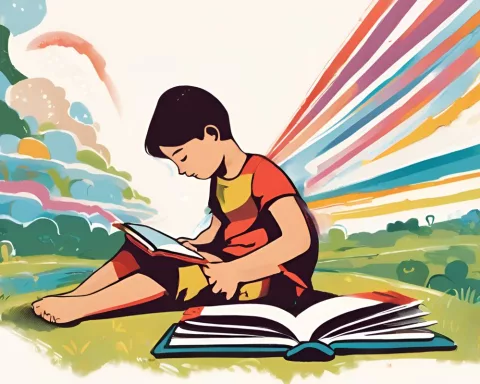World Read Aloud Day celebrates the power of storytelling and literacy, with the goal of enchanting three million children across South Africa this year. Libraries in Cape Town, along with the Library and Information Services, are crucial collaborators in this project, exemplifying the essence of community literacy. The benefits of this initiative extend beyond the individual children who hear the stories, positively influencing entire communities and fostering creativity, empathy, and understanding. The commitment of Cape Town’s city officials and caregivers across South Africa reflects the transformative power of stories and the lasting importance of literacy.
The Phenomenon of World Read Aloud Day celebrates the transformative power of orally relayed tales and the crucial role of literacy. This year, the event coordinators aim to enchant three million children across South Africa with the wonder of stories. Libraries in Cape Town, along with the Library and Information Services, are critical collaborators in this project, exemplifying the essence of community literacy. The benefits of this initiative extend beyond the individual children who hear the stories. They spread outwards, positively influencing entire communities.
Over the past ten years, a unique event has been making waves around the world, positively influencing the lives of countless young individuals. Known as World Read Aloud Day (WRAD), this initiative celebrates the transformative power of orally relayed tales and the crucial role of literacy. This year, the event coordinators have established an ambitious target. Their objective is to enchant no fewer than three million children across South Africa with the wonder of stories.
Initiated by LIT World in 2010, WRAD has since served as a shining symbol of community literacy, highlighting the significance of story-telling. In South Africa, the torch is carried by Nal’ibali, a nationwide initiative championing the joy of reading. Nal’ibali consistently raises the bar, year after year, urging all participants – parents, caregivers, and teachers – to read stories aloud to children across the country.
Libraries: A Pillar of Community Literacy
The libraries of Cape Town have eagerly embraced this noble endeavour. The Library and Information Services (LIS), a critical collaborator in this project, is ready to host WRAD activities in libraries throughout the city. This exemplifies the essence of community literacy.
Councillor Patricia van der Ross, a member of the Mayoral Committee for Community Services and Health, fervently supports this pursuit. She firmly believes that one of their goals is to instil a love for reading in children. “This begins with children listening to stories read aloud,” she explains. This activity goes beyond simply sparking a child’s imagination; it assists in the development of essential skills. Reading aloud sharpens listening capabilities, demonstrates language use, widens vocabulary, and improves understanding.
Some of the city’s libraries are going above and beyond, offering storytelling sessions, and even expanding their services to areas where children might not have easy access to a library. This level of commitment highlights the transformative impact of literacy and the community’s dedication to fostering young intellects.
The Transformative Impact of Storytelling
The city’s main WRAD event will take place at the Green Point Urban Park. Here, 200 children will have the opportunity to listen to stories shared by a group of skillful storytellers. This showcases the strength of unified effort and the city’s dedication to promoting a love for reading among its children.
Parents and caregivers wishing to support this initiative can visit the Nal’ibali website to download stories for reading aloud. According to Councillor Van der Ross, this initiative goes beyond mere educational efforts. It symbolises a significant investment in a child’s future. “Reading to children is not just about bonding,” she adds, “it’s an investment in their education and future, merely requiring a little bit of your time.”
With WRAD, Cape Town’s libraries aim to spark a love for reading among the young ones. Their efforts are rooted in education, community involvement, and cultural appreciation, reminding us of the transformative power of literacy.
The Power of Shared Stories: Building a More Literate Future
In the fast-paced rhythm of modern life, it can be challenging to find the time to read a story out loud to a child. However, this is exactly the practice that World Read Aloud Day inspires. These precious moments of sharing stories are invaluable for sparking imagination, strengthening bonds, and building a strong foundation for future development.
The benefits of this initiative extend beyond the individual children who hear the stories. They spread outwards, positively influencing entire communities. A society that values reading and storytelling fosters creativity, empathy and understanding. Therefore, the advantages of events like WRAD are not only immediate and individual but have the potential to reshape our shared future.
The commitment of Cape Town’s city officials, Nal’ibali, and innumerable parents and caregivers across South Africa, is a reflection of the transformative power of stories and the lasting importance of literacy. As World Read Aloud Day takes place across the country, the hope is that it will encourage similar initiatives elsewhere, inspiring millions more children globally.
With this in mind, the invitation to participate in World Read Aloud Day is open to everyone. Whether by visiting the nearest library or downloading a story from the Nal’ibali website, every story read aloud contributes to a more literate, empathetic, and understanding world. A world where every child can embark on incredible adventures through the power of stories.
1. What is World Read Aloud Day?
World Read Aloud Day (WRAD) is an annual event that celebrates the power of storytelling and literacy. It aims to enchant three million children across South Africa this year.
2. What is the role of libraries in WRAD?
Libraries, particularly in Cape Town, are crucial collaborators in the WRAD project. The Library and Information Services (LIS) is ready to host WRAD activities in libraries throughout the city. Some libraries are even offering storytelling sessions and expanding their services to areas where children might not have easy access to a library.
3. What are the benefits of reading aloud to children?
Reading aloud to children develops essential skills like listening, language use, vocabulary, and understanding. It also fosters creativity, empathy, and understanding, positively influencing entire communities.
4. When and where is the main WRAD event taking place in Cape Town?
The main WRAD event in Cape Town will take place at the Green Point Urban Park, where 200 children will have the opportunity to listen to stories shared by skillful storytellers.
5. How can parents and caregivers support the WRAD initiative?
Parents and caregivers can visit the Nal’ibali website to download stories for reading aloud to children. This is an investment in their education and future, requiring only a little bit of time.
6. What is the significance of WRAD?
WRAD is a symbol of community literacy, highlighting the significance of storytelling. The commitment of Cape Town’s city officials, Nal’ibali, and innumerable parents and caregivers across South Africa is reflective of the transformative power of stories and the lasting importance of literacy.












